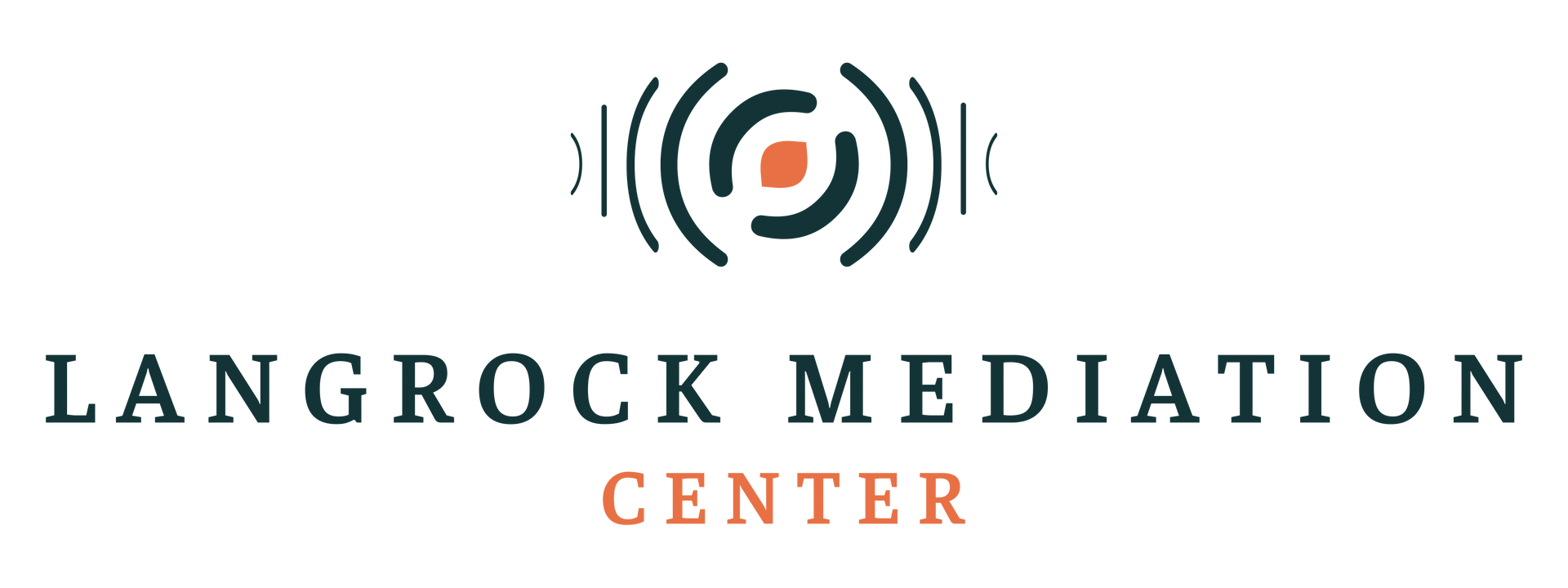What Type of Mediation Is Right for You?
Comparing Facilitative, Evaluative, and Transformative Approaches
Not all mediation is the same. While most people think of mediation as simply “meeting with a neutral person to resolve a conflict,” there are actually different styles of mediation—and each approach offers a unique path to resolution.
At Langrock Mediation, we believe that the process should reflect the needs of the parties. Whether you’re facing divorce, a business dispute, or a community conflict, understanding the three primary types of mediation—facilitative, evaluative, and transformative—can help you choose the right process for your situation.
Facilitative Mediation—Focused on Communication and Problem-Solving
Facilitative mediation is the most common and widely used approach. In this model, the mediator acts as a guide—facilitating communication, clarifying issues, and helping the parties explore their needs and interests. However, the mediator does not offer opinions, predictions, or legal advice.
When is Facilitative Mediation a Good Fit?
- When parties want to maintain control over the outcome.
- When communication has broken down but there is still a willingness to resolve the issue collaboratively.
- When creative, interest-based solutions are preferred over strictly legal outcomes.
Facilitative mediation is especially effective in family matters, co-parenting plans, and neighbor or landlord-tenant disputes, where ongoing relationships matter and the parties benefit from a more cooperative tone.
Evaluative Mediation—Guided by Legal Insight
Evaluative mediation takes a more directive approach. The mediator—often an experienced attorney or retired judge—evaluates the strengths and weaknesses of each side’s position and may offer opinions or propose settlement options based on legal standards or likely court outcomes.
This approach is more similar to settlement conferences and is often used in commercial litigation, insurance disputes, and personal injury cases where the parties want a reality check or practical guidance.
When is Evaluative Mediation a Good Fit?
- When legal rights and likely court outcomes are central to the dispute.
- When parties want expert input to help shape a resolution.
- When a fast, bottom-line resolution is preferred over relationship repair.
While evaluative mediators still encourage negotiation, they are more active in shaping the process and nudging parties toward a settlement.
Transformative Mediation—Prioritizing Empowerment and Recognition
Transformative mediation is less about resolving the issue and more about transforming how parties relate to one another. The mediator’s role is to support each party in gaining clarity, expressing themselves, and recognizing the other party’s perspective—often without steering the conversation toward a specific solution.
The goal is personal growth, mutual understanding, and empowerment, even if the parties don’t reach a final agreement.
When is Transformative Mediation a Good Fit?
- When relationships are deeply fractured and require repair beyond a specific dispute.
- When parties want to be heard and validated in a meaningful way.
- When the focus is on long-term communication, trust-building, or healing.
This approach is often used in workplace conflicts, community disputes, and family dynamics where emotional undercurrents or historical grievances play a major role.
So Which Mediation Style Is Best?
There’s no one-size-fits-all answer. Often, skilled mediators blend elements of each style based on the nature of the conflict, the personalities involved, and the desired outcome. At Langrock Mediation, we tailor the process to fit your situation, not the other way around.
Some clients want structure and legal perspective. Others need space for reflection and understanding. And many simply want a neutral, supportive environment to reach common ground. We can help you decide which approach—or combination of approaches—makes the most sense for your case.
Connect with Langrock Mediation
If you're considering mediation in Vermont, we invite you to reach out. At Langrock Mediation, we’re trained in all three major mediation styles and will work with you to create a process that meets your goals—whether you’re seeking resolution, transformation, or simply a better way forward. Contact us today to schedule a consultation and learn how mediation can work for you.



